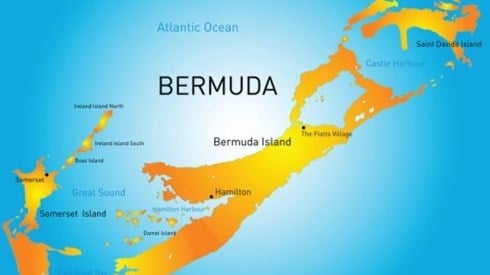Bermuda Re/Insurers Remain Resilient in Challenging Market Conditions

January 25, 2019

Bermuda-based re/insurers continue to be tested by challenging market conditions, including heightened catastrophic losses and diminishing competitive advantage resulting from US tax reform, according to Fitch Ratings. However, the Bermuda market remains resilient given its strong global position, demonstrated underwriting expertise, robust and effective regulatory backdrop, and Solvency II equivalence.
Fitch also said that mergers and acquisitions for Bermuda re/insurers are expected to continue as larger and smaller players face the realities of economies of scale. Smaller, marginalized players have exited the market due to profit and growth challenges, while larger ones see increasing difficulties in attaining organic growth. Business combinations, while providing a potential upside, are not without risk. Synergies are dependent upon the appropriate valuation of target companies, the level of integration risk, and the adequacy of reserves, among other considerations.
Tax reforms, including the lowered US corporate tax rate of 21 percent from 35 percent and the base erosion and anti-abuse tax have eroded Bermuda's pricing advantage relative to the United States according to the rating agency. With the economic incentive to internally cede business to Bermuda from the United States substantially diminished, Bermuda-based re/insurers have changed the structure of offshore operations, retaining more business and capital in US affiliates. Most intercompany quota-share arrangements have been canceled, while others have been reduced or restructured to lessen the negative impact.
Re/insurance industry capital remains very strong, allowing most individual companies to absorb near-term volatility and the effects of adverse events, said Fitch. Global insured catastrophe losses for the re/insurance industry reached $80 billion in 2018. While this fell 75 percent from the $140 billion from 2017, it remains meaningfully above the 10-year and 30-year inflation-adjusted averages of $61 billion and $41 billion, respectively.
Fitch expects the group of Bermuda-based re/insurers it actively follows to post a combined ratio near 100 percent for full-year 2018, down from 106.9 percent in 2017. This improvement reflects a reduced catastrophe loss burden of approximately 10 points on the 2018 combined ratio, compared to 20.2 points in 2017, although above the 5-year (2013–2017) average of 6.6 points.
Reinsurance pricing has disappointed sellers for the past 2 years, with overall rates flat and generally stable at the January 2019 renewals, Fitch said. Many market participants anticipated that substantial catastrophic losses would fuel momentum for a second year of rate increases; however, this has failed to materialize. As alternative capital increasingly competes with traditional capital, the extent of cyclical price changes following severe catastrophe losses will be reduced. However, rates could potentially increase at midyear 2019 following a capacity pullback by the insurance-linked securities market.
January 25, 2019






